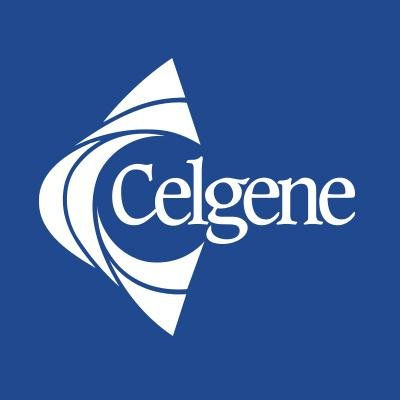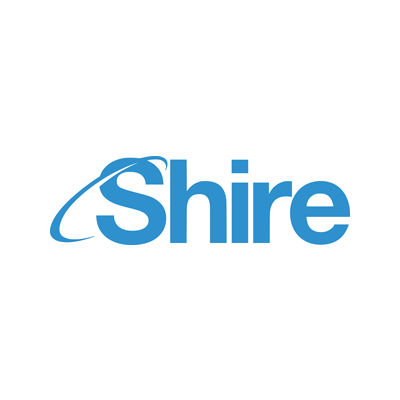Request Demo
Last update 08 May 2025

Les Laboratoires Servier SAS
Last update 08 May 2025
Overview
Tags
Neoplasms
Other Diseases
Nervous System Diseases
Small molecule drug
Monoclonal antibody
Antibody
Disease domain score
A glimpse into the focused therapeutic areas
No Data
Technology Platform
Most used technologies in drug development
No Data
Targets
Most frequently developed targets
No Data
| Top 5 Drug Type | Count |
|---|---|
| Small molecule drug | 52 |
| Monoclonal antibody | 12 |
| Unknown | 3 |
| Antibody | 3 |
| Chemical drugs | 2 |
Related
258
Drugs associated with Les Laboratoires Servier SASTarget |
Mechanism IDH1 inhibitors [+1] |
Active Org. |
Originator Org. |
Active Indication |
Inactive Indication |
Drug Highest PhaseApproved |
First Approval Ctry. / Loc. Canada |
First Approval Date01 Aug 2024 |
Target- |
Mechanism- |
Active Org. |
Originator Org. |
Active Indication |
Inactive Indication- |
Drug Highest PhaseApproved |
First Approval Ctry. / Loc. China |
First Approval Date20 May 2019 |
Target |
Mechanism ASN inhibitors |
Active Org. |
Originator Org. |
Active Indication |
Inactive Indication |
Drug Highest PhaseApproved |
First Approval Ctry. / Loc. United States |
First Approval Date20 Dec 2018 |
329
Clinical Trials associated with Les Laboratoires Servier SASNCT05609994
ViCToRy: Vorasidenib in Combination With Tumor Specific Peptide Vaccine for Recurrent IDH1 Mutant Lower Grade Gliomas
The purpose of this study is to determine the safety and efficacy of a PEPIDH1M vaccine in combination with vorasidenib, a dual inhibitor of mutant IDH1 and IDH2 enzymes, in adult patients diagnosed with recurrent IDH1 mutant lower grade gliomas.
Start Date01 Jun 2025 |
Sponsor / Collaborator  Duke University Duke University [+1] |
NCT05312372
A Phase 1/2, Open -Label, Multicenter Trial Investigating the Safety, Tolerability, Pharmacokinetics, and Preliminary Antineoplastic Activity of S095033 (MAT2A Inhibitor) in Combination With Paclitaxel in Participants With Advanced or Metastatic Esophageal Squamous Cell Carcinoma (ESCC)
The purpose of this study is to determinate the safety profile, tolerability, pharmacokinetics, and preliminary antineoplastic activity of S095033 in combination with paclitaxel in participants with advanced or metastatic esophageal squamous cell carcinoma (ESCC)
Start Date01 May 2025 |
Sponsor / Collaborator |
NCT06707493
A Randomized, Placebo-Controlled Phase 2 Study of IDH1 Inhibition Using Ivosidenib As Maintenance Therapy for IDH1-mutant Acute Myeloid Leukemia Following Allogeneic Stem Cell Transplantation
This is a Phase 2 study of the study drug, ivosidenib (a mutant IDH1 inhibitor), compared to placebo, given to patients with IDH1-mutant acute myeloid leukemia (AML) after hematopoietic stem cell transplantation (HCT).
Start Date01 May 2025 |
Sponsor / Collaborator |
100 Clinical Results associated with Les Laboratoires Servier SAS
Login to view more data
0 Patents (Medical) associated with Les Laboratoires Servier SAS
Login to view more data
479
Literatures (Medical) associated with Les Laboratoires Servier SAS01 Jun 2025·European Journal of Pharmaceutical Sciences
Overcoming barriers in formulating practically insoluble loteprednol etabonate in ophthalmic nanoemulsion
Article
Author: Krtalić, Iva ; Petriček, Igor ; Ljubica, Josip ; Pepić, Ivan ; Hafner, Anita ; Bočkor, Luka ; Kučuk, Maša Sufundžić ; Lovrić, Jasmina ; Kocbek, Petra ; Juretić, Marina ; Dukovski, Bisera Jurišić ; Špoljarić, Drago
01 Jun 2025·Journal of Chromatography A
Extended multidimensional design space studies: Comparing volatile and non-volatile buffer systems in UPLC
Article
Author: Zöldhegyi, Arnold ; Horváth, Krisztián ; Molnár, Imre ; Kormány, Róbert ; Soós, Barnabás
13 May 2025·Blood Advances
Randomized phase 2 study to assess the role of single-agent nivolumab to maintain remission in acute myeloid leukemia
Article
Author: Liu, Jane Jijun ; Grant, Steven ; Dillon, Laura W. ; Fulton, Noreen ; Hourigan, Christopher S. ; Lowrey, Christopher H. ; Patel, Prapti ; Salhotra, Amandeep ; Baer, Maria R. ; Gajewski, Thomas F. ; Stadler, Walter M. ; Hildebrandt, Gerhard C. ; Stock, Wendy ; Sharon, Elad ; Yaghmour, George ; Karrison, Theodore G. ; Streicher, Howard ; Zha, Yuanyuan ; Tzachanis, Dimitrios ; Lin, Tara L. ; Gui, Gege ; Pyzer, Athalia R. ; Larson, Richard A. ; Sweet, Kendra ; Schimmer, Aaron D. ; Andrew, Georgia ; Mattison, Ryan J. ; Odenike, Olatoyosi ; Jonas, Brian A. ; Liu, Hongtao ; Chen, Helen ; Zeidan, Amer M. ; Palmisiano, Neil
457
News (Medical) associated with Les Laboratoires Servier SAS23 Apr 2025
SOUTH SAN FRANCISCO, Calif., April 23, 2025 (GLOBE NEWSWIRE) -- Allogene Therapeutics, Inc. (Nasdaq: ALLO), a clinical-stage biotechnology company pioneering the development of allogeneic CAR T (AlloCAR T™) products for cancer and autoimmune disease, today announced that it will present updated data from the completed Phase 1 TRAVERSE trial of ALLO-316 in an oral presentation at the 2025 American Society of Clinical Oncology (ASCO) Annual Meeting, taking place May 29-June 2 in Chicago, Illinois. The trial evaluated ALLO-316 in patients with advanced or metastatic renal cell carcinoma (RCC) who had progressed following immune checkpoint inhibitor and VEGF-targeted therapies. In addition, a trial-in-progress poster is also being presented to highlight the ongoing pivotal Phase 2 ALPHA3 trial, which is evaluating cemacabtagene ansegedleucel (cema-cel) as part of first-line (1L) treatment for patients with large B-cell lymphoma (LBCL). ALLO-316 is an allogeneic, “off-the-shelf” CAR T product targeting CD70 and is the only allogeneic CAR T product to demonstrate potential in solid tumors. Data from the Phase 1 TRAVERSE trial previously showed a manageable safety profile and encouraging anti-tumor activity in heavily pretreated patients with advanced or metastatic CD70+ RCC. Enrollment is now complete in the Phase 1b expansion cohort, which evaluated the safety and efficacy of ALLO-316 at dose level 2 (80M CAR T cells) following a standard lymphodepletion regimen of cyclophosphamide and fludarabine. The ALPHA3 trial is the first pivotal study to evaluate an allogeneic CAR T product as a consolidation strategy aimed at eradicating minimal residual disease (MRD) following 1L treatment in LBCL. It is assessing cema-cel in patients with MRD after standard 1L chemoimmunotherapy, such as R-CHOP, with the goal of improving 1L cure rates. The trial identifies patients at high risk for relapse after 1L treatment by utilizing Foresight CLARITY™, powered by PhasED-Seq™, a novel Investigational Use Only (IUO) test for MRD. This randomized trial will enroll approximately 240 patients and is designed to demonstrate a meaningful improvement in event free survival (EFS) in patients treated with cema-cel relative to patients who receive the current standard of care (observation). Allogene Presentations at the 2025 ASCO Annual Meeting: ALLO-316 in advanced clear cell renal cell carcinoma (ccRCC): Updated results from the phase 1 TRAVERSE study.Presenter: Samer A. Srour, M.D., The University of Texas MD Anderson Cancer CenterSession Title: Oral Abstract Session – Genitourinary Cancer – Kidney and BladderAbstract: #4508Location: Hall D2Presentation Date and Time: Sunday, June 1, 9:45AM – 12:45PM CT ALPHA3: A pivotal phase 2 study of first-line (1L) consolidation with cemacabtagene ansegedleucel (cema-cel) in patients (pts) with large B-cell lymphoma (LBCL) and minimal residual disease (MRD) after response to standard therapy. Presenter: Jason Westin, MD, MS, FACP, The University of Texas MD Anderson Cancer CenterSession Title: Poster Session – Hematologic Malignancies – Lymphoma and Chronic Lymphocytic LeukemiaAbstract: TPS7085Poster Board: #267a Location: Hall APoster Session Display Date and Time: Sunday, June 1, 9:00AM – 12:00PM CT About Cemacabtagene Ansegedleucel (cema-cel)Cemacabtagene ansegedleucel, or cema-cel, is a next generation anti-CD19 AlloCAR T™ investigational product for the treatment of large B cell lymphoma (LBCL). In June 2022, the U.S. Food and Drug Administration granted Regenerative Medicine Advanced Therapy (RMAT) designation to cema-cel in r/r LBCL. The ALPHA3 pivotal Phase 2 trial in first line (1L) consolidation for the treatment of LBCL launched in June 2024. Allogene has oncology rights to cema-cel in the US, EU and UK with options for rights in China and Japan. About ALLO-316 (TRAVERSE)ALLO-316 is an AlloCAR T™ investigational product targeting CD70, which is highly expressed in renal cell carcinoma (RCC). CD70 is also selectively expressed in several cancers, creating the potential for ALLO-316 to be developed across a variety of both hematologic malignancies and solid tumors. The ongoing Phase 1 TRAVERSE trial is designed to evaluate the safety, tolerability, and activity of ALLO-316 in patients with advanced or metastatic clear cell RCC. In October 2024 the U.S. Food and Drug Administration (FDA) granted Regenerative Medicine Advanced Therapy (RMAT) designation based on the potential of ALLO-316 to address the unmet need for patients with advanced or metastatic CD70+ RCC. The FDA previously granted Fast Track Designation (FTD) to ALLO-316 in March 2023. In April 2024, the Company announced a $15 million award from the California Institute for Regenerative Medicine (CIRM) to support the ongoing TRAVERSE trial with ALLO-316 in RCC.About the ALPHA3 TrialOver 60,000 patients are expected to be treated for LBCL annually in the US, the EU and the UK. While first line (1L) R-CHOP or other chemoimmunotherapy is effective for most patients, approximately 30% who initially respond will relapse and require subsequent treatment. The current standard of care (SOC) after 1L treatment has been simply to “watch and wait” to see if the disease relapses. The pivotal Phase 2 ALPHA3 study takes advantage of cema-cel as a one-time, “off-the-shelf” treatment that can be administered immediately upon discovery of MRD following six cycles of R-CHOP or other chemoimmunotherapy, positioning it to become the standard “7th cycle” of frontline treatment available to all eligible patients with MRD. About Allogene TherapeuticsAllogene Therapeutics, with headquarters in South San Francisco, is a clinical-stage biotechnology company pioneering the development of allogeneic chimeric antigen receptor T cell (AlloCAR T™) products for cancer and autoimmune disease. Led by a management team with significant experience in cell therapy, Allogene is developing a pipeline of “off-the-shelf” CAR T cell product candidates with the goal of delivering readily available cell therapy on-demand, more reliably, and at greater scale to more patients. For more information, please visit www.allogene.com, and follow Allogene Therapeutics on X and LinkedIn. Cautionary Note on Forward-Looking Statements for AllogeneThis press release contains forward-looking statements for purposes of the safe harbor provisions of the Private Securities Litigation Reform Act of 1995. This press release may, in some cases, use terms such as “develop,” “potential,” “encouraging,” “expect,” “can,” “see if,” “positioning,” “become,” “may,” “could,” “designed to,” “aim,” or “will,” including alternative forms thereof, or other words that convey uncertainty of future events or outcomes to identify these forward-looking statements. Forward-looking statements include statements regarding intentions, beliefs, projections, outlook, analyses or current expectations concerning, among other things: ALPHA3 being a pivotal trial and the extent to which it will support regulatory approval of cema-cel; the potential for the ALPHA3 trial and an investigational minimal residual disease test to identify patients with LBCL who are at high risk for relapse after 1L treatment; the potential for cema-cel to become the standard “7th cycle” of frontline treatment; the potential for cema-cel to eradicate MRD or demonstrate a meaningful improvement in event free survival in patients treated with cema-cel relative to patients who receive current standard of care; that cema-cel can be administered immediately upon discovery of MRD following six cycles of R-CHOP or other chemoimmunotherapy; the timing for completion of ALPHA3 enrollment or cema-cel BLA submission; the incidence of LBCL including the extent to which patients will relapse and require subsequent treatment; the potential for our product candidates to be approved; the potential benefits of the ALPHA3 trial and of AlloCAR T™ products; cema-cel’s safety profile; the potential of ALLO-316 as a treatment for patients with advanced or metastatic CD70+ RCC; the potential for ALLO-316 and CAR T-cell therapy to treat hematologic malignancies and solid tumors; our ability to deliver cell therapy on-demand, more reliably, and at greater scale to more patients. Various factors may cause material differences between Allogene’s expectations and actual results, including, risks and uncertainties related to: the limited nature of our Phase 1 data from our clinical trials and the extent to which such data may or may not be validated in any future clinical trials; the extent to which the Food and Drug Administration disagrees with our clinical or regulatory plans or the import of our clinical results, which could cause future delays to our clinical trials or require additional clinical trials; we may encounter difficulties enrolling patients in our clinical trials; we may not be able to demonstrate the safety and efficacy of our product candidates in our clinical trials, which could prevent or delay regulatory approval and commercialization; and challenges with manufacturing or optimizing manufacturing of our product candidates. These and other risks are discussed in greater detail in Allogene’s filings with the Securities and Exchange Commission (SEC), including without limitation under the “Risk Factors” heading in its Quarterly Report on Form 10-K for the year ended December 31, 2024. Any forward-looking statements that are made in this press release speak only as of the date of this press release. Allogene assumes no obligation to update the forward-looking statements whether as a result of new information, future events or otherwise, after the date of this press release. AlloCAR T™ is a trademark of Allogene Therapeutics, Inc.CLARITY™ and PhasED-Seq™ are trademarks of Foresight Diagnostics. Allogene’s investigational AlloCAR T™ oncology products utilize Cellectis technologies. The anti-CD19 products are developed based on an exclusive license granted by Cellectis to Servier. Servier, which has an exclusive license to the anti-CD19 AlloCAR T™ investigational products from Cellectis, has granted Allogene exclusive rights to these products in the U.S., all EU Member States and the United Kingdom. Allogene Media/Investor Contact:Christine CassianoEVP, Chief Corporate Affairs & Brand Strategy Officer(714) 552-0326Christine.Cassiano@allogene.com
Phase 1ImmunotherapyLicense out/inPhase 2ASCO
16 Apr 2025
Novartis is discontinuing further development of QUC398 in knee osteoarthritis, a company spokesperson said.\n Novartis has terminated a phase 2 trial evaluating an investigational ADAMTS-5 inhibitor for patients with osteoarthritis knee pain.The Big Pharma company discontinued the study testing intra-articular injection QUC398 after an interim analysis found an “insufficient effect on pain relief,” a Novartis spokesperson told Fierce Biotech.The candidate demonstrated a “good safety profile,” the spokesperson added.As a result of the trial termination, Novartis is discontinuing further development of QUC398 in knee osteoarthritis, the spokesperson said.The randomized, placebo-controlled trial enrolled 101 patients, according to ClinicalTrials.gov. All participants will receive follow-up as per study protocol, the spokesperson told Fierce.The spokesperson said they did not have information about whether Novartis would assess QUC398 in any other indication. The asset is not included in the pharma’s online pipeline.In 2020, Novartis picked up an anti-ADAMTS5 nanobody from Merck KGaA for 50 million euros upfront. At the time, the asset known as M6495 was ready for phase 2 testing in osteoarthritis. It\'s unclear whether M6495 is QUC398. ADAMTS-5 is an enzyme expressed in human cartilage. Previously, Galapagos and Servier teamed up to take their ADAMTS-5 inhibitor GLPG1972 (also known as S201086) through development for knee osteoarthritis.However, the asset failed to demonstrate efficacy in a phase 2 study, with the partners sharing in a 2020 release that “no signal of activity was observed in the topline results.”Currently, there aren’t any anti-ADAMTS-5 treatments available on the market.
Phase 2
08 Apr 2025
With its ability to specifically inhibit the mutant IDH1 enzyme, TIBSOVO addresses an unmet need in personalized cancer treatment, offering new hope for patients with limited options. As clinical evidence continues to support its efficacy and safety, TIBSOVO is positioned for strong growth in the oncology market, especially with expanding indications and global market penetration.
LAS VEGAS, April 8, 2025 /PRNewswire/ -- DelveInsight's "
TIBSOVO Market Size, Forecast, and Market Insight Report" highlights the details around TIBSOVO, the first and only targeted therapy approved for patients with previously treated IDH1-mutated cholangiocarcinoma. The report provides product descriptions, patent details, and competitor products (marketed and emerging therapies) of TIBSOVO. The report also highlights the historical and forecasted sales from 2020 to 2034 segmented into 7MM [the United States, the EU4 (Germany, France, Italy, and Spain), the United Kingdom, and Japan].
Servier's TIBSOVO (ivosidenib) Overview
TIBSOVO (ivosidenib) is a small molecule developed by Servier, acts as an isocitrate dehydrogenase-1 (IDH1) inhibitor. It is indicated for patients with a susceptible IDH1 mutation, which is identified through an FDA-approved test.
Currently, TIBSOVO is approved for the treatment of newly diagnosed acute myeloid leukemia (AML), relapsed or refractory AML, relapsed or refractory myelodysplastic syndromes (MDS), and locally advanced or metastatic cholangiocarcinoma.
According to Servier's pipeline, TIBSOVO is also being actively investigated for a range of additional indications, with key areas of exploration including solid tumors and hematological malignancies.
Learn more about TIBSOVO projected market size for AML, cholangiocarcinoma, and MDS @
TIBSOVO Market Potential
The oncology market has experienced significant growth in recent years, driven by advances in cancer research, the development of targeted therapies, and the increasing global prevalence of cancer. As the second-leading cause of death worldwide, cancer continues to pose a major public health challenge, creating a substantial demand for innovative treatments. The market is marked by a shift toward personalized medicine, where therapies are tailored to an individual's genetic profile, allowing for more effective and less toxic treatments. Immunotherapies, such as checkpoint inhibitors, CAR-T cell therapies, and oncolytic virus therapies, are at the forefront of these advancements, offering new hope to patients with previously untreatable cancers.
Moreover, the oncology market is expanding due to the growing adoption of precision oncology and molecular diagnostics, which enable earlier and more accurate detection of cancer. This has led to increased investments in research and development, especially in areas like liquid biopsies, companion diagnostics, and next-generation sequencing. The demand for more effective and accessible cancer treatments is fueling innovation in both the pharmaceutical and biotechnology sectors, with numerous new drugs and therapies entering clinical trials and moving toward commercialization. As a result, the oncology market is poised to continue growing, with significant opportunities for breakthrough therapies in immuno-oncology, targeted treatments, and gene therapies.
DelveInsight has expertise in the oncology market with an experienced team handling the oncology domain proficiently. DelveInsight has released a series of epidemiology-based market reports on
Acute Myeloid Leukemia, Cholangiocarcinoma, and Myelodysplastic Syndrome. These reports include a comprehensive understanding of current treatment practices, emerging drugs, market share of individual therapies, and current and forecasted market size from 2020 to 2034, segmented into 7MM [the United States, the EU4 (Germany, France, Italy, and Spain), the United Kingdom, and Japan].
Gain deeper insights into these diseases with a customized report tailored to your needs.
Connect with us today—our experts are ready to assist you!
Emerging Competitors of TIBSOVO
TIBSOVO faces significant competition in the newly diagnosed AML market from several alternative treatments. Oral therapies like
VENCLEXTA (venetoclax), which inhibits BCL-2, and
DAURISMO (glasdegib), which targets the hedgehog pathway, present strong contenders. Additionally, emerging therapies such as
Lisaftoclax (Ascentage Pharma), another BCL-2 inhibitor, and
gilteritinib (Astellas), a kinase inhibitor, are expected to further challenge TIBSOVO in the newly diagnosed AML space.
In the R/R AML market, TIBSOVO competes with several therapies, including
XOSPATA (gilteritinib),
IDHIFA (enasidenib), and others. Emerging therapies such as
Ziftomenib (Kura Oncology) and RVU-120 (Ryvu Therapeutics) are also expected to compete with TIBSOVO upon their approval. Ziftomenib, a small molecule developed by Kura Oncology, is currently in Phase I/II trials.
In the relapsed/refractory (R/R) MDS market, TIBSOVO faces competition from therapies such as
RYTELO (Imetelstat), an IV injection that inhibits oligonucleotide telomerase, and
REBLOZYL (Luspatercept), a subcutaneous injection, among other treatment options.
In the metastatic cholangiocarcinoma market, TIBSOVO faces relatively less competition, as there are few approved therapies. One such competitor is
PEMAZYRE (pemigatinib), a kinase inhibitor that was approved in the US in 2020 and in Europe in 2021. Whereas, Tyra Biosciences' TYRA-200, an FGFR1/2/3 inhibitor, is in phase I stage of development that might be a threat to TIBSOVO one approved.
To know more about the number of competing drugs in development, visit @
TIBSOVO Market Positioning Compared to Other Drugs
Key Developmental Activities of TIBSOVO
In
October 2023,
Servier announced that the FDA has approved TIBSOVO (ivosidenib tablets) for the treatment of IDH1-mutated R/R MDS.
In
May 2023, Servier announced that the European Commission has approved TIBSOVO as a targeted therapy in two indications: in combination with azacitidine for the treatment of adult patients with newly diagnosed AML with an isocitrate dehydrogenase-1 R132 mutation who are not eligible to receive standard induction chemotherapy; as well as in monotherapy for the treatment of adult patients with locally advanced or metastatic cholangiocarcinoma with an IDH1 R132 mutation who were previously treated by at least one prior line of systemic therapy.
In
May 2022, Servier announced FDA approval of TIBSOVO (ivosidenib tablets) in combination with azacitidine for patients with newly diagnosed IDH1-mutated acute myeloid leukemia.
In
August 2021, Servier announced FDA approval for TIBSOVO (ivosidenib tablets) for the treatment of adult patients with previously treated, locally advanced, or metastatic cholangiocarcinoma with an IDH1 mutation as detected by an FDA-approved test. TIBSOVO is the first and only targeted therapy approved for patients with previously treated IDH1-mutated cholangiocarcinoma.
In
May 2019, Agios announced FDA approval of TIBSOVO (ivosidenib tablets) as monotherapy for newly diagnosed adult patients with IDH1 mutant acute myeloid leukemia not eligible for intensive chemotherapy.
In
July 2018, the FDA approved TIBSOVO (ivosidenib) for relapsed or refractory acute myeloid leukemia with an idh1 mutation.
In
February 2018, the FDA accepted a new drug application and granted priority review for ivosidenib in relapsed or refractory AML with an IDH1 mutation.
In
December 2017, Agios submitted an NDA to the FDA for ivosidenib for the treatment of patients with relapsed/refractory aml and an IDH1 mutation.
TIBSOVO Patent Details
TIBSOVO is a drug owned by Servier Pharmaceuticals. Currently, it is protected by 10 Orange book-listed patents filed from 2018 to 2023, out of which none have expired yet. It is also protected by ODE exclusivity for various indications.
Discover how TIBSOVO is shaping the blood cancer treatment landscape @
TIBSOVO Side Effects
TIBSOVO Market Dynamics
In recent years, the therapeutic landscape has undergone significant changes, with promising approaches including
immunotherapy, chemotherapy combined with targeted treatments, and the regulation of immune checkpoint-mediated signaling pathways. One such treatment,
Ivosidenib, works by inducing the bone marrow to develop normal blood cells, helping to reduce the frequency of blood transfusions.
Investment in the
research and development of drugs has surged, contributing to a rich pipeline and forecasting promising opportunities in the treatment markets for AML and cholangiocarcinomas. Therapies like TIBSOVO have the potential to capture market attention due to their
efficacy and innovation.
As
healthcare spending continues to rise globally, the pharmaceutical market is expected to expand, providing greater opportunities for
market penetration by manufacturers and facilitating the development and distribution of new treatments.
Despite progress in cancer treatment,
significant gaps remain in understanding the full process that governs carcinogenesis and resistance to treatments, particularly in cancers like acute myeloid leukemia (AML). This highlights the
need for more advanced research to address these challenges. Additionally, the
limited biomarker testing for patients with the IDH1 mutation restricts the targeted patient pool, posing a challenge for therapies like TIBSOVO to achieve their expected market share.
The
increasing competition from emerging therapies, such as KEYTRUDA (pembrolizumab), IMFINZI (durvalumab), and the combination of Azacitidine + Venetoclax, further intensifies the pressure on TIBSOVO. Moreover, the
difficulty in obtaining sufficient patient pools and
diagnostic samples during disease recurrence presents significant hurdles to the effective development of translational research, potentially slowing progress in optimizing treatments.
Dive deeper to get more insight into TIBSOVO's strengths & weaknesses relative to competitors @
TIBSOVO Market Drug Report
Table of Contents
Related Reports
Acute Myeloid Leukemia Market
Acute Myeloid Leukemia Market Insights, Epidemiology, and Market Forecast – 2034 report deliver an in-depth understanding of the disease, historical and forecasted epidemiology, as well as the market trends, market drivers, market barriers, and key AML companies including
Agios Pharmaceuticals, Abbvie, Jazz Pharmaceuticals, Astellas Pharma, Pfizer, Novartis Oncology, Daiichi Sankyo, AstraZeneca, Astex Pharmaceuticals, Inc., Chimerix, Takeda, Rafael Pharmaceuticals Inc., Delta-Fly Pharma, GlycoMimetics Incorporated, BerGenBio ASA, MacroGenics, Syndax Pharmaceuticals, Arog Pharmaceuticals, Forma Therapeutics, Sellas Life Sciences Group, Actinium Pharmaceuticals, Clear Creek Bio Inc., CellCentric Ltd., Biosight Ltd., Astex Pharmaceuticals, Inc., Curis, Inc., NexImmune Inc., Immunomedics, Inc., Sumitomo Dainippon Pharma Co., Ltd., Incyte Corporation, Aprea Therapeutics, Immunicum, DCPrime BV, GT Biopharma, Inc., Hanmi Pharmaceutical Company Limited, Cardiff Oncology, Bio-Path Holdings, Actinium Pharmaceuticals, Aptevo Therapeutics, Synimmune GmbH, GEMoaB Monoclonals, ImmunoGen, Inc., AGC Biologics S.p.A., Precigen, Inc., Novartis Pharmaceuticals, Xencor, Inc., Novartis, Celgene, Bristol Myers Squibb, among others.
Relapsed/Refractory Acute Myeloid Leukemia Market
Relapsed/Refractory Acute Myeloid Leukemia Market Insights, Epidemiology, and Market Forecast – 2034 report deliver an in-depth understanding of the disease, historical and forecasted epidemiology, as well as the market trends, market drivers, market barriers, and key R/R AML companies including
Agios Pharmaceuticals, Abbvie, Jazz Pharmaceuticals, Astellas Pharma, Pfizer, Novartis Oncology, Daiichi Sankyo, AstraZeneca, Astex Pharmaceuticals, Inc., Chimerix, Takeda, Rafael Pharmaceuticals Inc., Delta-Fly Pharma, GlycoMimetics Incorporated, BerGenBio ASA, MacroGenics, Syndax Pharmaceuticals, Arog Pharmaceuticals, Forma Therapeutics, Sellas Life Sciences Group, Actinium Pharmaceuticals, Clear Creek Bio Inc., CellCentric Ltd., Biosight Ltd., Astex Pharmaceuticals, Inc., Curis, Inc., NexImmune Inc., Immunomedics, Inc., Sumitomo Dainippon Pharma Co., Ltd., Incyte Corporation, Aprea Therapeutics, Immunicum, DCPrime BV, GT Biopharma, Inc., Hanmi Pharmaceutical Company Limited, Cardiff Oncology, Bio-Path Holdings, Actinium Pharmaceuticals, Aptevo Therapeutics, Synimmune GmbH, GEMoaB Monoclonals, ImmunoGen, Inc., AGC Biologics S.p.A., Precigen, Inc., Novartis Pharmaceuticals, Xencor, Inc., Novartis, Celgene, Bristol Myers Squibb, among others.
Myelodysplastic Syndrome Market
Myelodysplastic Syndrome Market Insight, Epidemiology, and Market Forecast – 2034 report delivers an in-depth understanding of market trends, market drivers, market barriers, and key MDS companies such as
Bristol-Myers Squibb, Astex Pharmaceutical, Taiho Oncology, Fibrogen, AbbVie, Gilead Sciences, Novartis, Syros Pharmaceuticals, Takeda, Pfizer, Geron Corporation, Karyopharm Therapeutics, Antengene Corporation, BerGenBio ASA, Jazz Pharmaceuticals, Aprea Therapeutics, Sanofi, Medac, among others.
Cholangiocarcinoma Market
Cholangiocarcinoma Market Insight, Epidemiology, and Market Forecast – 2034 report delivers an in-depth understanding of market trends, market drivers, market barriers, and key cholangiocarcinoma companies such as
AstraZeneca, Decalth Systems, Basilea Pharmaceutica, Taiho Oncology, Eisai Pharmaceuticals, TransThera Sciences, Incyte Corporation, Roche, Agios Pharmaceuticals, Servier Pharma, among others.
About DelveInsight
DelveInsight is a leading Business Consultant and Market Research firm focused exclusively on life sciences. It supports pharma companies by providing comprehensive end-to-end solutions to improve their performance. Get hassle-free access to all the healthcare and pharma market research reports through our subscription-based platform PharmDelve
.
Contact Us
Shruti Thakur
[email protected]
+14699457679
Logo:
SOURCE DelveInsight Business Research, LLP
WANT YOUR COMPANY'S NEWS FEATURED ON PRNEWSWIRE.COM?
440k+
Newsrooms &
Influencers
9k+
Digital Media
Outlets
270k+
Journalists
Opted In
GET STARTED
Drug ApprovalImmunotherapyPhase 1Priority Review
100 Deals associated with Les Laboratoires Servier SAS
Login to view more data
100 Translational Medicine associated with Les Laboratoires Servier SAS
Login to view more data
Corporation Tree
Boost your research with our corporation tree data.
login
or

Pipeline
Pipeline Snapshot as of 03 Mar 2026
The statistics for drugs in the Pipeline is the current organization and its subsidiaries are counted as organizations,Early Phase 1 is incorporated into Phase 1, Phase 1/2 is incorporated into phase 2, and phase 2/3 is incorporated into phase 3
Discovery
16
10
Preclinical
IND Approval
1
10
Phase 1 Clinical
Phase 2 Clinical
17
1
Phase 3 Clinical
NDA/BLA
1
29
Approved
Other
173
Login to view more data
Current Projects
| Drug(Targets) | Indications | Global Highest Phase |
|---|---|---|
Amlodipine Besylate/Perindopril Arginine ( ACE x VDCCs ) | Hypertension More | Approved |
Pegaspargase ( ASN ) | Acute Lymphoblastic Leukemia More | Approved |
Piribedil ( DRDs ) | Vascular Diseases More | Approved |
Trimetazidine Hydrochloride ( ACAA2 ) | Angina Pectoris More | Approved |
Rilmenidine Phosphate ( ADRA2 ) | Hypertension More | Approved |
Login to view more data
Deal
Boost your decision using our deal data.
login
or

Translational Medicine
Boost your research with our translational medicine data.
login
or

Profit
Explore the financial positions of over 360K organizations with Synapse.
login
or

Grant & Funding(NIH)
Access more than 2 million grant and funding information to elevate your research journey.
login
or

Investment
Gain insights on the latest company investments from start-ups to established corporations.
login
or

Financing
Unearth financing trends to validate and advance investment opportunities.
login
or

AI Agents Built for Biopharma Breakthroughs
Accelerate discovery. Empower decisions. Transform outcomes.
Get started for free today!
Accelerate Strategic R&D decision making with Synapse, PatSnap’s AI-powered Connected Innovation Intelligence Platform Built for Life Sciences Professionals.
Start your data trial now!
Synapse data is also accessible to external entities via APIs or data packages. Empower better decisions with the latest in pharmaceutical intelligence.
Bio
Bio Sequences Search & Analysis
Sign up for free
Chemical
Chemical Structures Search & Analysis
Sign up for free



